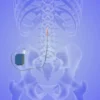Millions of people who have cancer suffer from cancer-related pain, including deep, aching pain in their bones. Cancer-related pain primarily happens as a growing tumor presses on nerves or other tissues, causing painful pressure and sometimes interfering with the way the organ functions. Cancer treatments or diagnostic procedures can cause pain, too.
Cancer-related bone pain can occur with cancers that affect the bones themselves, but it’s also a common side effect of advanced breast, prostate, and lung cancer. That’s because, in advanced stages, these common types of cancer often metastasize (spread) to the bone.
Our team at Advanced Spine and Pain Center specializes in finding pain relief solutions for cancer patients, relying on the most advanced technology for meaningful pain relief and improved quality of life. In this post, learn about the pain management therapies that can help you manage your cancer-related bone pain.
Medication
Over-the-counter medication may provide some relief for mild to moderate pain, but many people with stubborn pain require prescription medications. Unfortunately, these medications come with side effects, like gastrointestinal issues and itching.
Regular dose adjustments are ended to maintain relief while avoiding or minimizing unpleasant side effects. Many patients benefit from other pain management options used in conjunction with lower doses of pain medication or on their own without oral medicine.
Pain pumps
Pain pumps also deliver pain medication, but instead of delivering it orally, the pump targets the site of pain in a very controlled and precise manner. With a pain pump, pain relief typically exceeds relief provided by pain medication while using a much smaller dose.
Pain pumps are implanted under your skin, usually in or near your belly. The pump is adjusted to deliver a specific dose of medication based on your needs.
Spinal cord stimulation (SCS)
Spinal cord stimulation also uses an implanted device. Still, instead of administering pain medication, this technique delivers tiny electrical impulses to spinal nerves, interrupting nerve signaling and preventing signals from reaching the brain.
Like pain pumps, SCS systems can be adjusted over time based on the patient’s evolving needs. SCS can be especially effective for limb pain that doesn’t respond to medication.
Peripheral nerve stimulation (PNS)
Peripheral nerve stimulation works similarly to spinal cord stimulation, except instead of targeting nerves where they exit the spine, PNS focuses on pain associated with nerves in other areas. The device is implanted near the affected nerve, delivering tiny electrical bursts to disrupt pain signaling and improve pain.
Epidural steroid injections
Epidural steroid injections can be effective for managing pain in or near the spine, including pain associated with tumor metastasis from other areas of the body. These injections deliver powerful anti-inflammatory and pain medications to the epidural space surrounding the spine.
Nerve blocks
Nerve blocks also use medication injections to block pain signals and relieve inflammation. These injections provide highly targeted relief for pain in localized areas of the limbs or spine.
Radiofrequency ablation (RFA)
Radiofrequency ablation uses energy to destroy a small part of a nerve, essentially cutting off communication from that nerve to the brain. For people with cancer-related bone pain, RFA can also target cancerous lesions, destroying cancer cells for long-lasting pain relief.
RFA is a minimally invasive procedure usually performed under local anesthesia, sometimes with sedation. Your doctor inserts a needle-like probe using real-time imaging to ensure accurate and precise placement. Once the probe is in place, it emits bursts of radiofrequency energy to destroy cells.
Kyphoplasty for spine pain
Sometimes, cancer can cause tiny spine fractures called vertebral compression fractures. Kyphoplasty is a minimally invasive procedure that injects a special surgical cement into the vertebra to stabilize it and restore space between the bones, relieving pressure on surrounding nerves.
Find a solution that works for you
Our team works closely with every patient to develop a pain management solution that provides meaningful pain relief and improved quality of life. To learn more about the options we offer to help you manage cancer-related pain, book an appointment online or over the phone with the team at our two locations in San Antonio, Texas, today.





